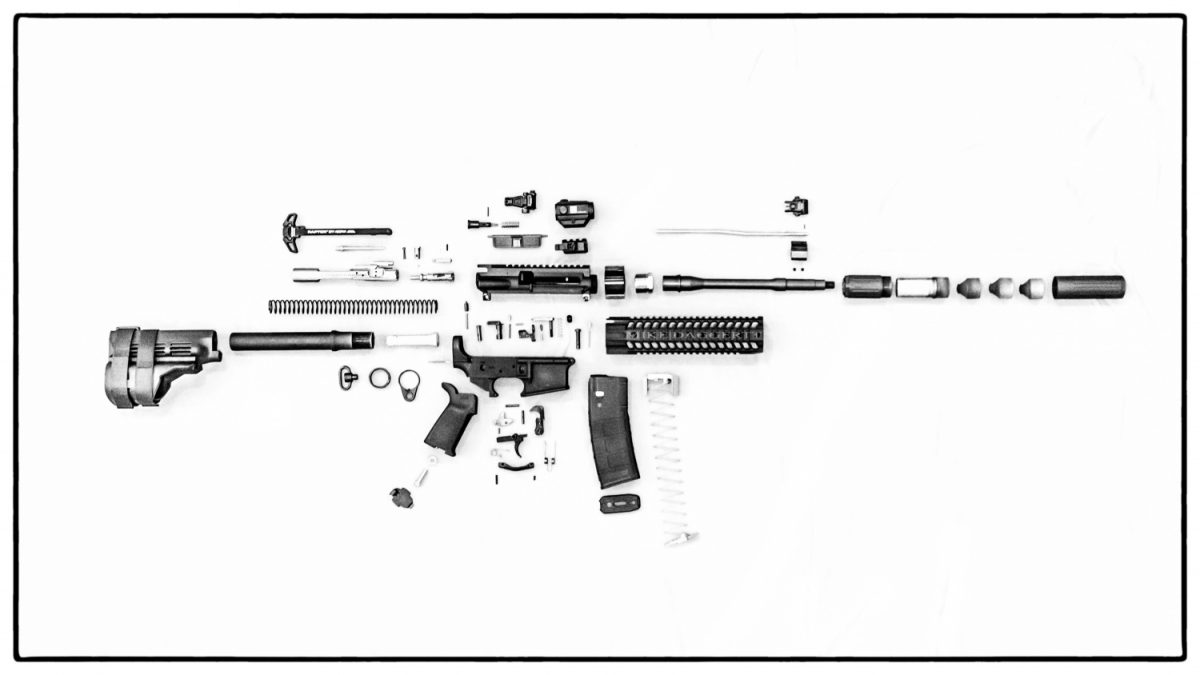On Wednesday, February 28, President Trump hosted a bipartisan meeting between congressional policymakers to discuss what actions should be taken to ensure that the reoccurrence of heinous acts of gun violence is put to an end.
Following the meeting, President Trump posted on his personal Twitter account, “It was an honor to welcome bipartisan members of Congress for a discussion on SAFE schools and SAFE communities. As we continue to mourn the loss of so many precious young lives in Parkland, we are determined to turn our grief into action.”
Trump called Democrats and Republicans alike to action, saying that he had already spoken with representatives of the National Rifle Association—the powerful lobbying group advocating for gun rights—and told them that we must act upon the causes of the tragedies in Florida and all across the United States.
Among the first few sentences of the hour long roundtable, Trump quoted the statistic/factoid that “98% of all mass shootings in the United States since 1950 have taken place in gun free zones” and claimed that “if you had one person in that room that could carry a gun and knew how to use it, it wouldn’t have happened.” The factoid, however has been disputed on numerous occasions as it uses a loose definition of “gun free zone” and presumes that mass killers would not commit the same crime in an area where concealed carry is allowed.
President Trump went on to tell the lawmakers to not worry about legislation over bump stocks—rifle attachments that make semi-automatic rifles mimic the firing speed of fully automatic rifles—because he would use an executive order to immediately ban the device.
Senator John Cornyn (R-TX) followed Trump by advocating for greater communication between government agencies in the reporting of criminal activity, mental status, and factors that would be measured in background checks. Senator Chris Murphy (D-CT) pointed out that 97% of Americans advocate for universal background checks for gun owners and that it is a common sense idea that would get universal support. The bipartisan team of Senators Pat Toomey (R-PA) and Joe Manchin (D-WV) further pushed the universal background check idea, which would require any and all gun sales to be registered with accompanying background checks—including interstate sales and gun show sales.
Toomey and Manchin noted that such ideas were around in the Obama era, but the former president’s strong views on gun control made voters and lawmakers fear that he would push the laws beyond their comfort. Thus, laws that could not pass in the Obama presidency have potential for implementation under the Trump presidency.
Trump went on to introduce his belief that “you could take the guns away immediately from the people who you can judge very easily are mentally ill.” This has stirred controversy that the president is willing to suspend due process and court proceedings, pushing the government’s power to a new and upper limit. Senator Chuck Grassley (R-IA) brought up the counterpoint that many people with mental illness are not at all dangerous to themselves or others.
Another point brought up was the fact that handguns are off limits until the age of 21, however all rifles and shotguns are accessible at the age of 18. This is a matter of controversy as many young adults are responsible hunters and gun owners—even serving in the military at such a young age—and the actions of a few mentally ill individuals could prevent them from exercising their Constitutional right to bear arms for another three years.
Senator Amy Klobuchar (D-MN) brought up the issue of domestic violence and the fact that “states that have these background checks have a 38% lower domestic homicide rate.” Trump responded with great support of domestic violence considerations within a new gun control expansion bill.
Congresswoman Marsha Blackburn (R-TN) shared the belief with President Trump that violence in media, including video games and movies, exposes children to harmful ideas and visuals that desensitize them.
Throughout the meeting, multiple attempts by lawmakers were made to push the topic of loosening concealed carry laws in order to allow civilians to stop shooters, which Trump pushed aside saying that it would hinder the bill from getting passed and is an issue for another time.
Overall, the meeting has left many optimistic for steps forward in prevention of these mass shootings, while leaving others questioning which side Trump is on.





























